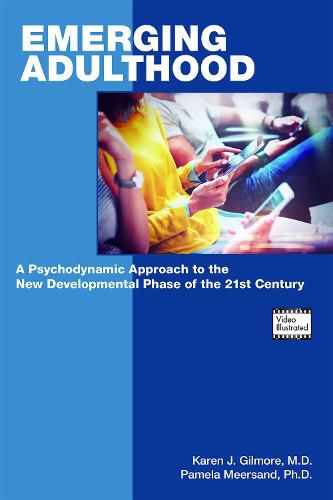Readings Newsletter
Become a Readings Member to make your shopping experience even easier.
Sign in or sign up for free!
You’re not far away from qualifying for FREE standard shipping within Australia
You’ve qualified for FREE standard shipping within Australia
The cart is loading…






What makes an adult? Is it living independently, having a stable career path, getting married, or becoming a parent? In the digital age, particularly in Western societies, such traditional markers have been increasingly postponed and redefined. Thus, the concept of emerging adulthood, first described by Jeffrey Jensen Arnett, Ph.D., is a period between adolescence and adulthood properly characterized by identity exploration, instability, self-focus, feeling in-between, and a sense of wide-open possibilities.
Many contemporary researchers have defined emerging adulthood as the period between ages 18 and 29 years, but this new volume argues that it is more useful to look at early emerging adulthood, or late adolescence (ages 18-23), and later emerging adulthood (ages 24-29) separately. Although certain broad trends characterize the entire decade in question (role experimentation, focus on self-discovery), the developmental capacities and tasks of the earlier years are distinct from those of the mid- to late 20s.
In accessible chapters made even more applicable by the use of illustrative vignettes and videos that provide an individualized depiction of the broader concepts addressed more abstractly within the book, Emerging Adulthood: A Psychodynamic Approach to the New Developmental Phase of the 21st Century examines the overarching similarities and developmental distinctions between these two periods and subsequently delves into
* The identity process in contemporary society, and its inevitable intersection with the digital world, focusing on domains such as race/ethnicity, gender and sexuality, values, and professional roles
$9.00 standard shipping within Australia
FREE standard shipping within Australia for orders over $100.00
Express & International shipping calculated at checkout
What makes an adult? Is it living independently, having a stable career path, getting married, or becoming a parent? In the digital age, particularly in Western societies, such traditional markers have been increasingly postponed and redefined. Thus, the concept of emerging adulthood, first described by Jeffrey Jensen Arnett, Ph.D., is a period between adolescence and adulthood properly characterized by identity exploration, instability, self-focus, feeling in-between, and a sense of wide-open possibilities.
Many contemporary researchers have defined emerging adulthood as the period between ages 18 and 29 years, but this new volume argues that it is more useful to look at early emerging adulthood, or late adolescence (ages 18-23), and later emerging adulthood (ages 24-29) separately. Although certain broad trends characterize the entire decade in question (role experimentation, focus on self-discovery), the developmental capacities and tasks of the earlier years are distinct from those of the mid- to late 20s.
In accessible chapters made even more applicable by the use of illustrative vignettes and videos that provide an individualized depiction of the broader concepts addressed more abstractly within the book, Emerging Adulthood: A Psychodynamic Approach to the New Developmental Phase of the 21st Century examines the overarching similarities and developmental distinctions between these two periods and subsequently delves into
* The identity process in contemporary society, and its inevitable intersection with the digital world, focusing on domains such as race/ethnicity, gender and sexuality, values, and professional roles